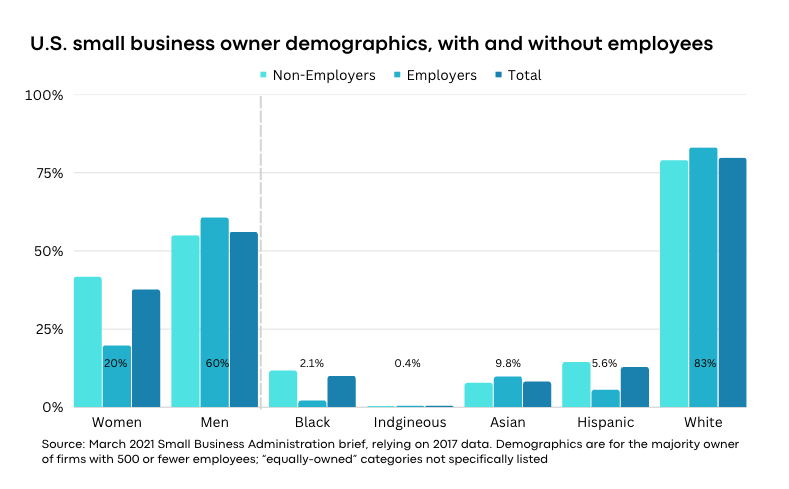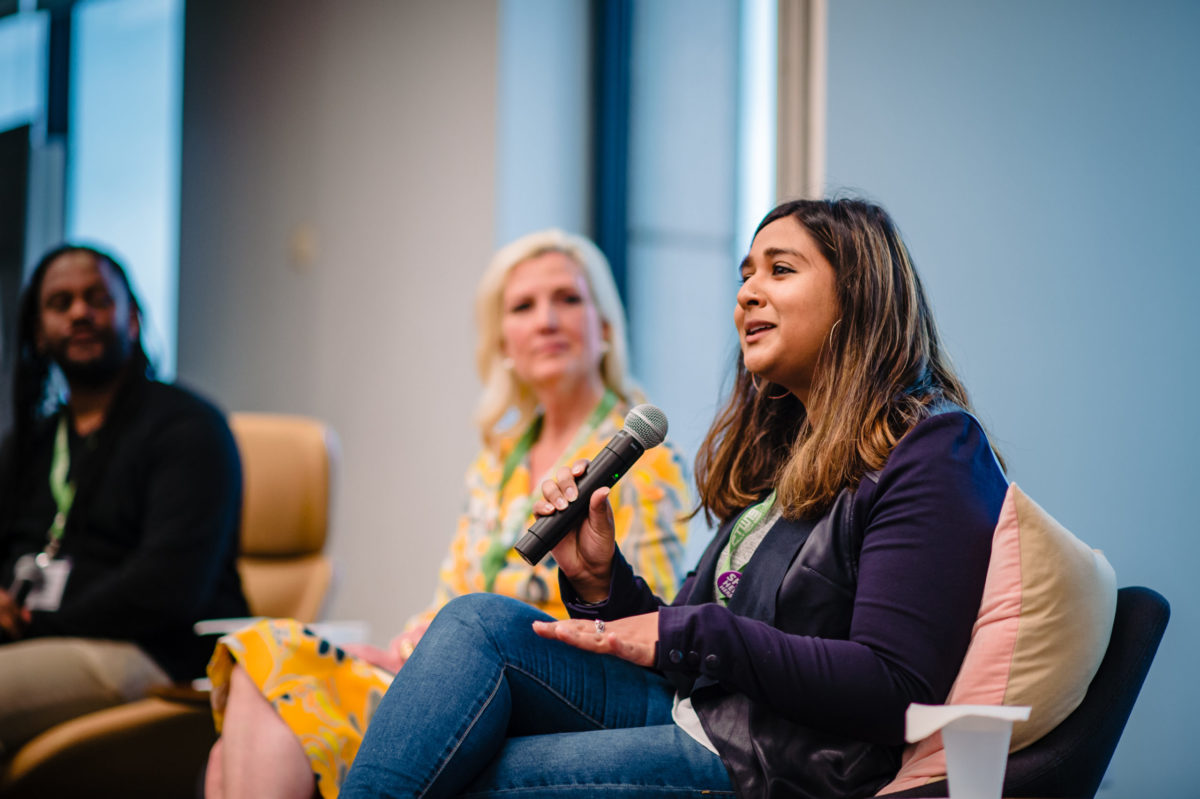Kelly Burton launched her tech-based apparel company Bodyology in 2014. She developed a product, added customers and grew revenue.
Three years later, she wasn’t where she wanted to be.
Burton, a Black woman and first-time tech founder, felt excluded from the network of investors that specialized in her industry — a common challenge among founders of color. Short of the growth rate other startup apparel brands sought, she closed the business. Then she decided to focus on helping other entrepreneurs overcome the obstacles she had faced.
Burton is now the CEO of the Black Innovation Alliance (BIA), and she represents a range of trends in “inclusive entrepreneurship,” an advocacy priority that has grown over the last 20 years into a major economic policy objective.
Burton is one of dozens of entrepreneurs Technical.ly interviewed for a new landmark report we’re publishing today, with support from the Community Impact, Americas team from UBS, entitled “The Inclusion Edge: Powering an Entrepreneurial Renaissance.” The report looks at the past, present and future of inclusive entrepreneurship.
Alongside the report, today, Burton will join me, entrepreneurship advocate Victor Hwang and UBS Head of Impact Jamie Sears in a LinkedIn Live conversation to discuss the report. Watch here.
Entrepreneurship boomed in the United States after the immediate pandemic shock, and Black women have helped lead the effort. Higher rates of immigration contributed, too. Though the demographics of those who start companies in the United States have become more representative of the country’s population as a whole, those who grow companies haven’t changed as much. Put another way: Most American demographic groups start companies but not as many grow them.

Burton felt she didn’t have the network to grow a tech company a decade ago. Now she’s part of a wave of programs to make it easier for others. A decade of investments in inclusive entrepreneurship may have met the pandemic moment. Now there’s a whole new stage of inclusive entrepreneurship priorities.
Informing those who set those priorities is the goal for today’s report.







